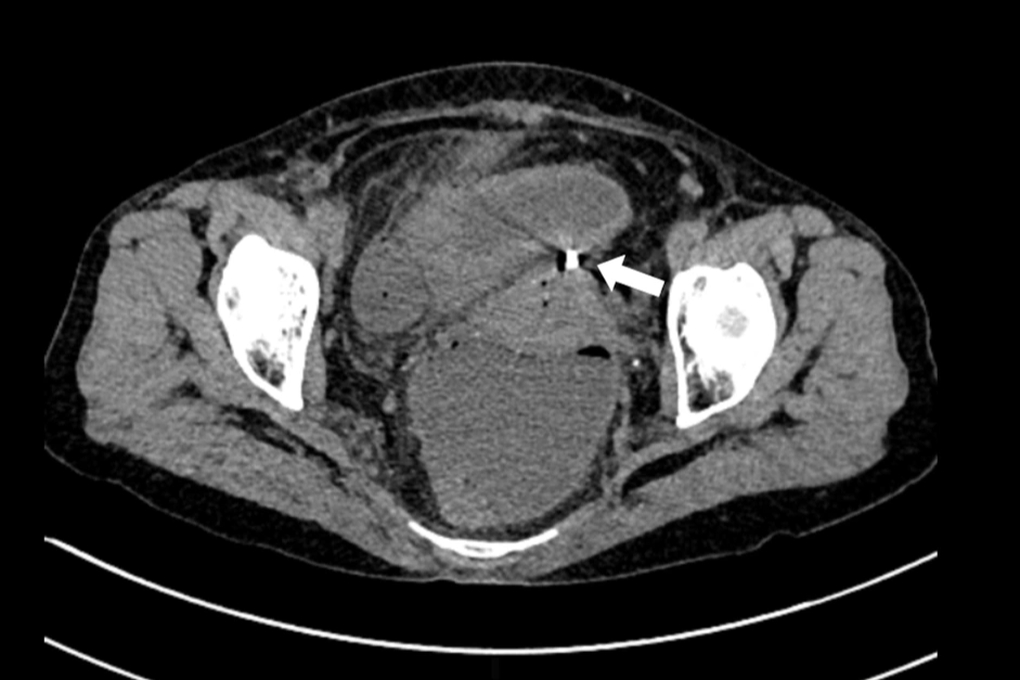Bach Mai Hospital ( Hanoi ) has just received and treated a 69-year-old female patient with a perforated uterus due to a 30-year history of using an IUD .
The patient was admitted to the hospital with peritonitis, perforated small intestine, and an IUD outside the uterine wall. The surgeons on duty immediately performed an emergency open partial hysterectomy, sutured the perforated small intestine, and cleaned the patient's abdominal cavity.

The image shows the intrauterine device passing through the uterine wall into the intestine. Photo: Provided by the hospital
Doctor Trieu Van Truong, Deputy Head of the General Surgery Department, Bach Mai Hospital, said that this patient had an IUD for 30 years. Recently, she noticed pink vaginal discharge so she went to the hospital to have it removed but failed. After 4 days, she had continuous lower abdominal pain accompanied by vomiting, vaginal bleeding, unable to defecate, and no fever.
Upon admission, the patient had symptoms of peritonitis such as abdominal distension and pain throughout the abdomen. CT scan showed free gas in the abdominal cavity, functional intestinal obstruction, intestinal wall thickening in the right iliac fossa, and a foreign body penetrating the uterine fundus.
Doctors performed an emergency surgery on the patient, removing a partial hysterectomy, suturing the perforated small intestine, and cleaning the abdominal cavity. However, 6 days after the surgery, the patient had to have a second surgery to temporarily remove the two ends of the small intestine due to a ruptured small intestine suture hole. The postoperative process was stable, and the patient was discharged from the hospital 10 days after the second surgery.
According to Dr. Truong, intrauterine devices, or IUDs, are the most popular contraceptive method in the world . Up to 14.3% of women of reproductive age are currently using intrauterine devices. However, when placed in the uterine cavity, these devices can also cause complications such as pain, abnormal bleeding, and misplaced devices causing perforation of the small intestine, colon, or bladder.
In addition, complications related to the removal procedure may include uterine perforation and infection with a rate of about 1/1000 but the consequences are very serious. This complication may be accompanied by bowel and bladder perforation.
Doctor Truong advises that women with IUDs should have the IUD removed from their body after menopause to prevent complications or should have it removed once every 5 years.
Source



































































































Comment (0)